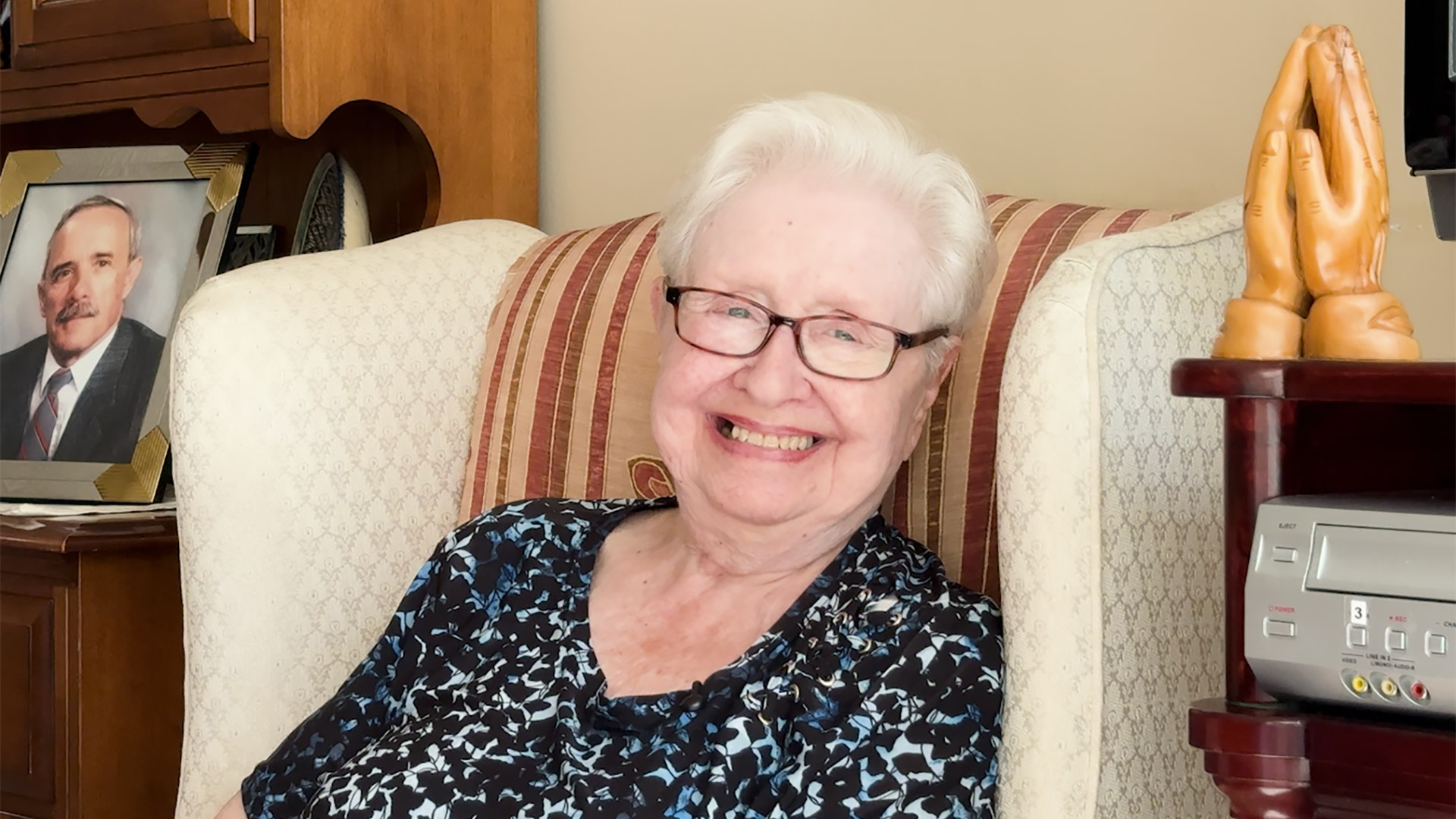
Born in Belgium in 1934, Marika could never have imagined her translations would one day bring spiritual hope to thousands across the French-speaking world.
But today, at 91 years old, (yes, you read that right!) she’s still faithfully translating devotionals for Notre Pain Quotidien (Our Daily Bread in French).
“The more I worked in God’s Word, the more I loved it. I always say to Jesus that I want to do what You want me to do.”
That passion has carried her through many seasons. For starters, the tools have changed, from typewriters to computers.
“I had to learn to work on a computer.” she says. “Once I’m on my computer and working.
“I don’t even think of having to eat. I’m so busy… maybe a little piece of Belgian chocolate,” she says with a hearty laugh.
She is driven to continue her work by a passion for translation and the conviction that the French world needs God Word. Most importantly, her deep love of Jesus fuels the work she does today.
“She’s such a sweetheart. So gentle,” says Cynthia Martineau, Manager of French Language Ministries with Our Daily Bread Ministries Canada.
“She has been concerned if she is still making a valuable contribution. Like asking me, ‘Am I still enough?” says Cynthia, who has assured her that is indeed very much needed.
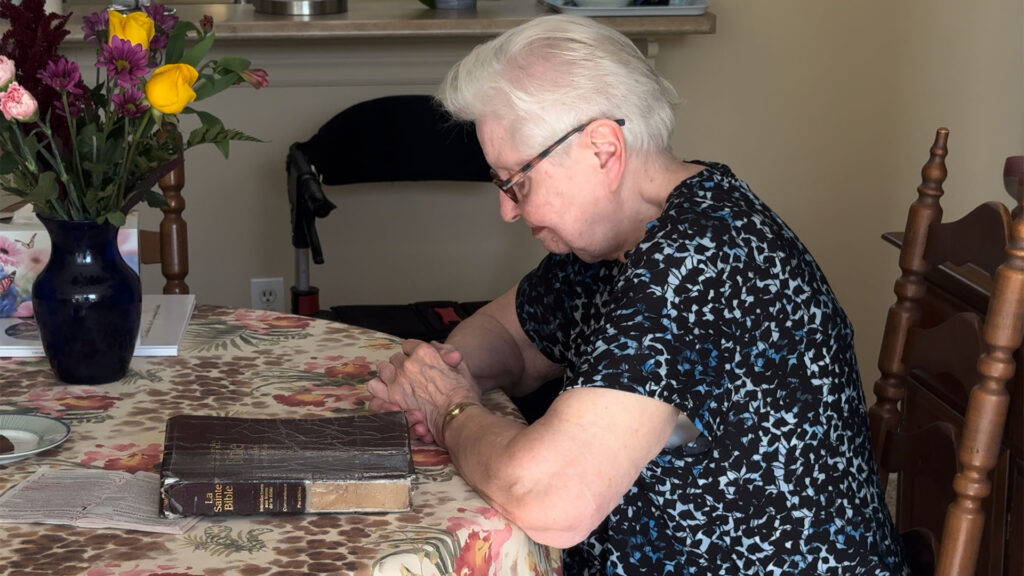
Marika is on a translation team of about 10 translators and revisers, who reside in France and in Canada. For decades, she was the first translator in the process. These days, she is tasked with revising the translations.
“Actually, it is even more important than the initial translation,” says Cynthia. “She has the original English text next to the translation, and she is ensuring that we capture the essence of the text.”
Cynthia adds that Marika is really like a gatekeeper and performs a role that artificial intelligence (AI) never could. The translations need to capture the nuances of language but Notre Pain Quotidien also uses an international French for its global ministry, so Marika needs to ensure that the translator is not using a word or expression that would not be understood outside their country and context.
“Our devotionals draw people closer to God and to the Bible. It’s already a culture jump from the time and place of the Bible to French. But French is a language used in multiple cultures around the world. Marika and the team need to be almost oversensitive to this, so they provide the best possible devotional experience for francophones everywhere,” adds Cynthia.
For Marika, it’s been quite a journey. It started when she and her husband moved to Canada in 1960.
“God brought us here,” she says.
Spiritually searching at the time, Marika prayed, “If you are really God, I would like you to let me know.”

She and her husband both came to know Jesus, and she began to learn how to see life differently and listen for God’s leading.
While working as a university secretary in Québec, she took evening classes to learn English. A friend saw her potential in translation and told her, “You have a gift for it.”
God opened doors, and that encouragement led her to one of the first French translations for Our Daily Bread more than 40 years ago, by our records!
“I never thought that one day I would be doing this,” she says, smiling, remembering that time so long ago. “It’s a real passion for me…I just love it! It’s more than a profession—it’s a profession of faith.”
Marika has translated God’s Word for readers in Canada, Europe, Africa, and beyond. Reading her Bible each day, every devotional she works on is rooted in her deep love for God.
Marika’s translations carry the message of Christ across cultures and continents. Each devotion she completes is a gift to someone she may never meet, but who will be encouraged by the translated words.
She is hopeful that the next generation will carry on her work.
“I hope that there will be young people interested in doing the work, that there will be more translators. I won’t live 200 years!” (Marika encourages the youth today to be enthusiastic about the work they do!)
As for retirement, it’s not in the plan.

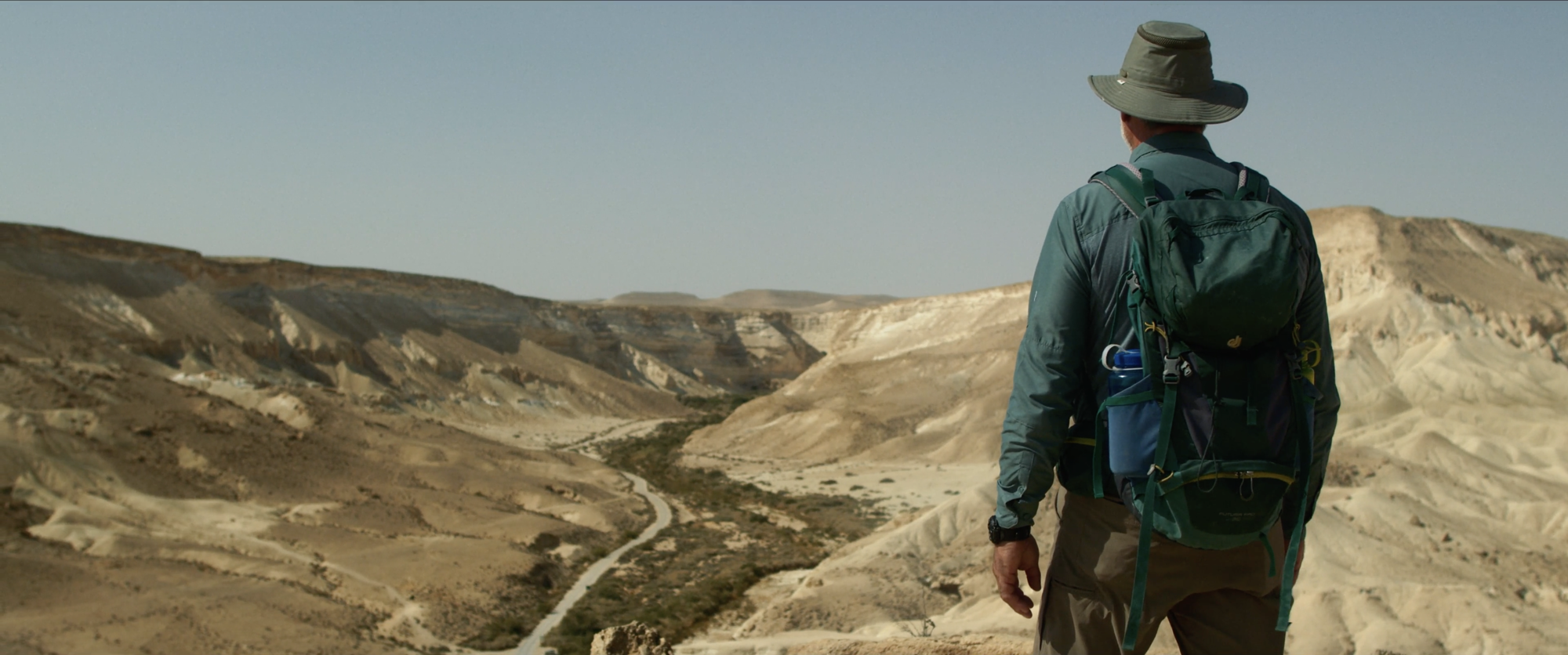
Biblical geography. Maybe those words intrigue you … or make you shy away. No matter if you’ve ever considered what “land” has to do with Scripture, we know a man who may just pique your curiosity and “turn up the volume on the Bible” for you.
Dr. John A. Beck. Although he is seminary-trained with two master’s degrees and a PhD, he is more like a friend who will walk with you to ignite a passion for learning more about Scripture than you ever thought possible. And, he likes to be called Jack.
This friendliness and approachability makes Jack a unique fit to host Our Daily Bread Ministries’ video series The Holy Land: Connecting The Land With Its Stories.
“If we are people of place, and place is very much a part of how we’re shaped and how we interact with one another, then there’s no way I can leave my understanding of place out of any literature, much less the Bible,” Jack said.
He believes that the Bible’s stories are so greatly impacted by location and setting, that it’s vital for us to truly understand how God communicated to His people in Scripture and to us today. Engaging with Scripture is “always a spirit-led process. Reading the Bible is different than reading another book.”

Jack’s background in language and literature informed one way for him to view Scripture. But in grad school, he met a Bible geographer who sparked his interest in how the biblical authors and poets used geographical content to shape the learning—or faith—experience. Since then, incorporating geography as a tool in his multi-faceted toolbelt has allowed Jack to bring a whole new level of understanding to others.
As an adjunct professor at Jerusalem University College, he regularly travels to the Holy Land to teach and lead tours. These tours often cover over 100 miles of hiking in 10 to 12 days so people can experience the rugged outdoors and “feel” what the people on the pages of the Bible felt.
Jack is a scholar who has collaborated with Our Daily Bread Ministries (ODBM) to write numerous books, teach online classes, and film four seasons of The Holy Land. His first book with ODBM, the Discovery House Bible Atlas, was published in 2015 and was well-received because it was more like a Bible commentary that married the land with the stories. (Fun fact: The French translation is soon to be released by the Our Daily Bread Ministries Canada and distributed around the world. It has taken more than 12 years to translate with two attempts because many of the concepts, places, and names have never been translated to French before.)
Ten years later, this work has being re-published as the Our Daily Bread Bible Atlas. Even if you have the first atlas, the new version is a great addition to your library. “The clarity within the essays has gotten stronger,” Jack said. “The visuals have gotten a big touch-up. It really is a new piece, reflecting both maturity in my own thinking of the topic and the communication of that and the illustrations.”
Season 4 of The Holy Land video series has now been released, so we can virtually travel with Jack to Samaria, the Southern Wilderness, and Jerusalem. His goal in every season of this series is “to take folks into the land and show them that there’s a connection between how things happened and where they happened.” He guides us to a region and tells the arc of stories that happened there, organizing the content by historical location rather than a chronological approach.

Although Jack treasures all his excursions on these production shoots, one of his most memorable times was in the Jezreel Valley at the spring where Gideon and his army drank (Judges 7). It happened to be a holiday, so many families with children were camping and enjoying themselves. When the kids invited Jack into the water, he immediately rolled up his pantlegs, took off his shoes, and joined them laughing and splashing in the cool water.
Although the spontaneous moment led to the demise of the microphone he still wore, Jack heartily agreed, “I’m grateful for those moments that are unplanned, unscripted but absolutely spot on!”
Jack appreciates exploring in his personal life, too. He and his wife Marmy live in Germantown, Wisconsin but are often soaring around the country in the airplane they built themselves. “We’re always up for an adventure. We egg each other on and sometimes it takes us outside the bounds of what makes sense to do,” Jack chuckled.
Whether it’s snowshoeing in the Colorado Rockies with Marmy or leading an expedition of eager students in Israel, Jack loves being outdoors and bringing the stories of the Bible to life. “This is my passion . . . to turn the volume up on those things that maybe get less attention,” Jack said. “I hope you leave your time with me a more interested, informed, and engaged Bible reader.”
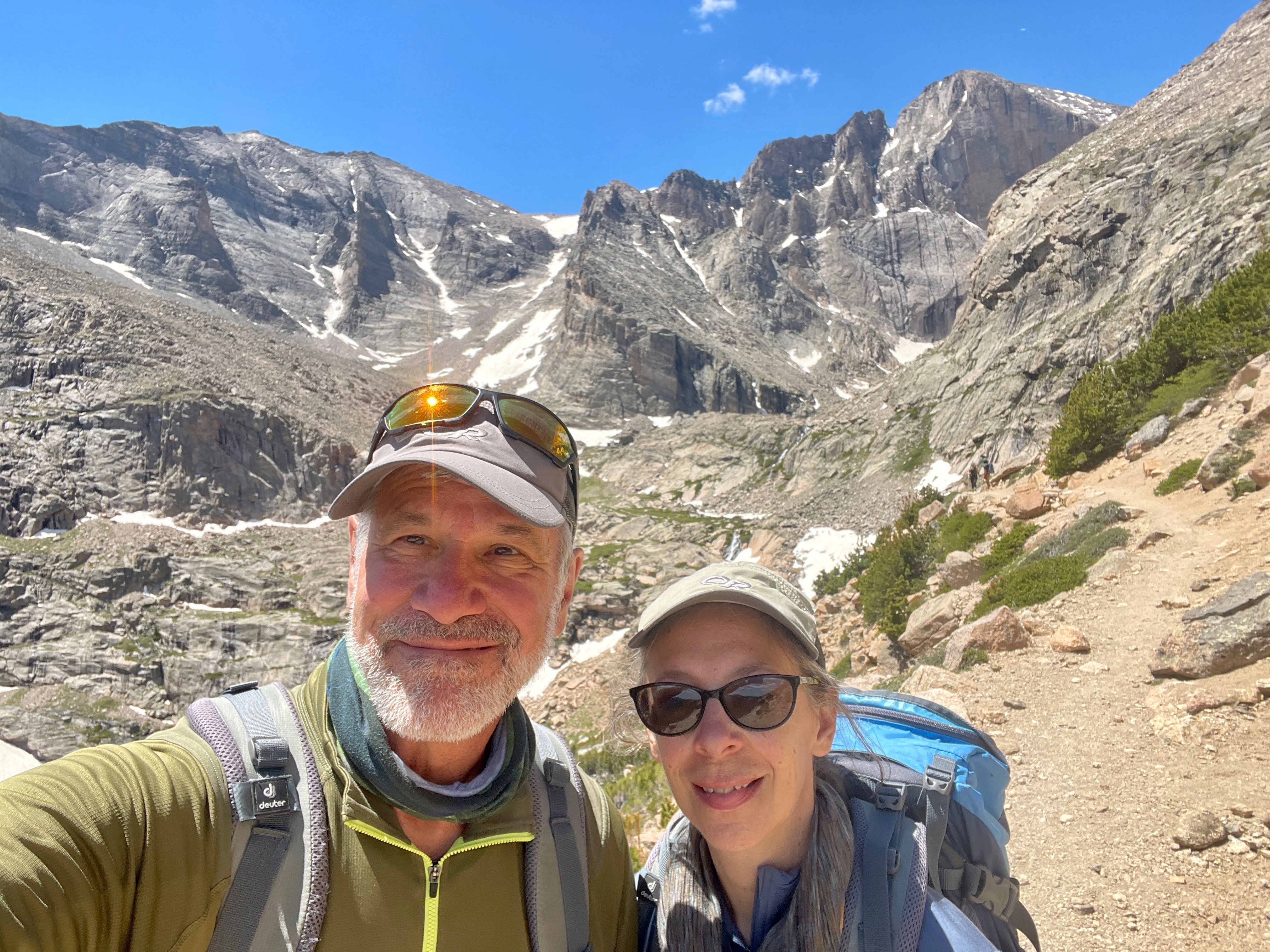
Adventure with Jack Beck:
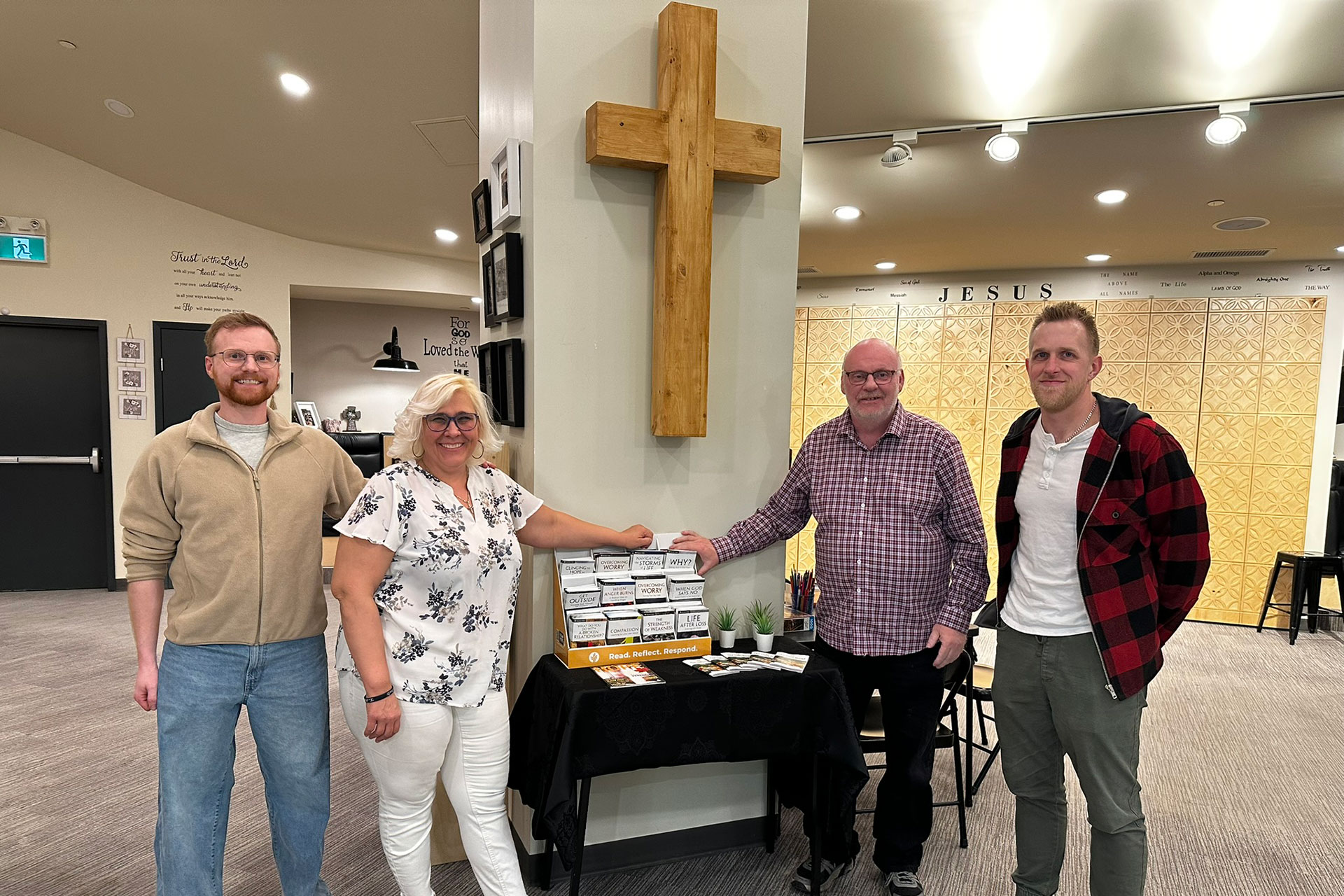
Tucked inside the West Edmonton Mall, lives are being quietly changed—not with sales, but with compassion, conversation, and the power of the gospel.
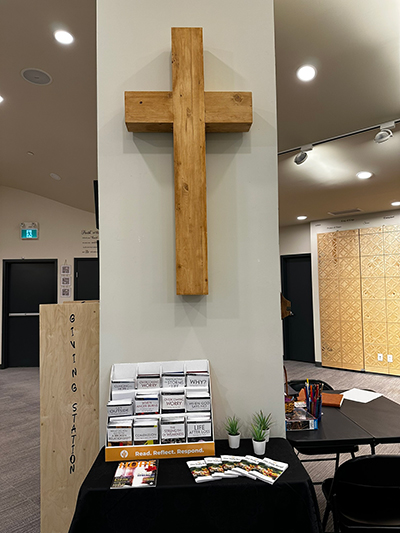
The Lovedmonton Chapel is a ministry planted right in the heart of West Edmonton Mall (WEM), a place visited by more than 30 million people each year!
“This is an outreach community,” Braden explains. “Our goal is to be a storefront to the gospel in WEM. We want to be a place where the gospel can be spread in the mall.”
From youth with nowhere else to go to curious tourists, the chapel ministers to a wide range of people. Open every day of the week and weekend, the team also offers coffee, prayer, and encouragement to employees who work in the mall. But this unique mission field also presents challenges—especially engaging passersby in meaningful, faith-centred conversations.
That’s where the Discovery Series display comes in.
“The thing that I like about the display is that it’s topical, so if you’re in the middle of someone going through anxiety or depression, you can send them home not just with a conversation but a practical resource too.”
– Braden from Lovedmonton
The display has become an impactful ministry tool inside the chapel, serving as both a resource and a pulse check on the spiritual needs within the mall. Booklets on anxiety, depression, and anger are picked up the most—often restocked because they are snapped up quickly.
“It’s really helpful for tracking what the mall is sensing at the time,” Braden notes. “I can even tailor our youth lessons to what people are gravitating toward.”
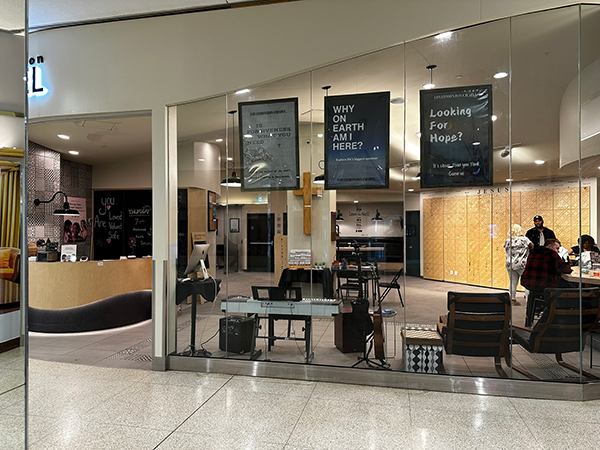
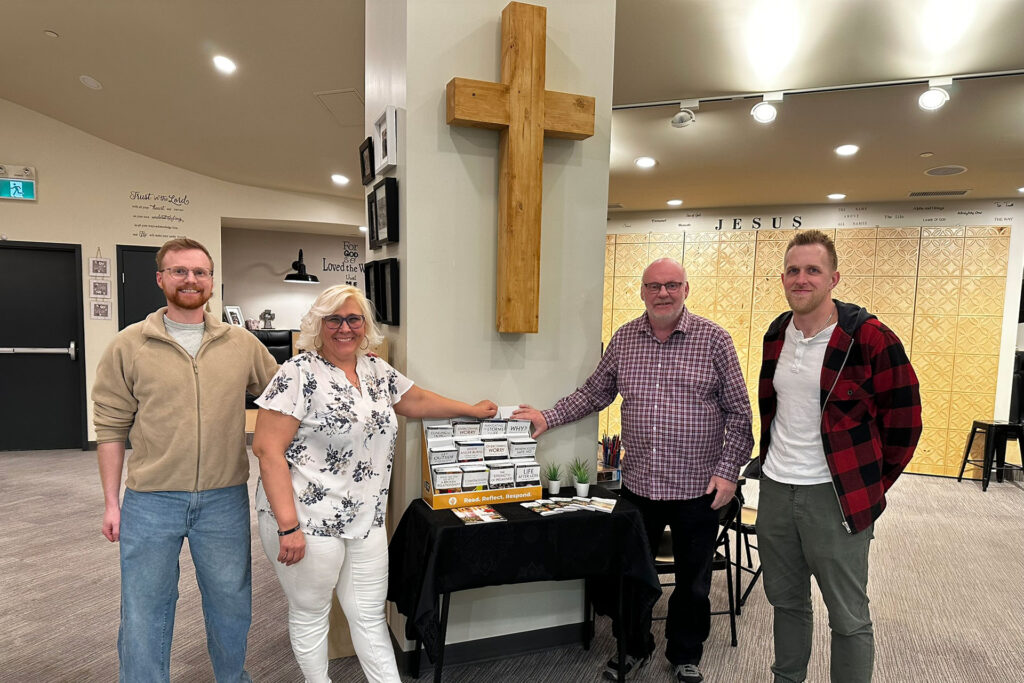



The chapel space, which resembles a coffee shop, offers a space for youth who come to the mall simply because they have nowhere else to go. Music, games, snacks, Bible studies, and genuine conversations pave the way for gospel encounters.
Braden’s vision is simple: to meet people where they’re at. “Because it’s not a big pressure thing, you can say, ‘Do any of these interest you?’ instead of saying ‘you really need this one.’” He trusts the Holy Spirit will do the rest.
In a place where faith isn’t expected, Lovedmonton Chapel is making the hope of Jesus not just visible—but accessible, one visitor at a time.
Braden from the Lovedmonton Chapel is a volunteer Ministry Ambassador for Our Daily Bread Ministries Canada. That means he is approved by the chapel leadership to serve as a connection point between his ministry and ours. It helps Lovedmonton figure out what resources we have and how we can help.
Consider becoming an Ambassador for your church or organization today!

November 2025 | It was new territory for our ministry—hanging out with 3,000 young people from all over Ontario.
But we know it’s where God wants us, partnering with churches and organizations to meet the needs of today’s youth.
What a blessing it was for all involved this fall!
Last month, three team members from Our Daily Bread Ministries Canada hosted a booth at the Change Conference in Toronto. This annual event is held in several big Canadian cities, hosted by Youth for Christ, an organization that dates back to the 1940s.
[Fun fact: Evangelist Billy Graham was Youth for Christ’s first full-time staff member in the U.S.!]
We weren’t sure what to expect. We had 600 hand-made buttons promoting Bible engagement at the table, and we hoped they would open the door to conversation.
Turns out, those buttons were a hit and, giving one per person who requested it, we quickly ran out!
It was a great opportunity to offer the young people copies of Our Daily Bread and Discovery Series booklets, which are always free. We also had a chance to explain the meaning of a devotional and why the spiritual practice helps draw you into Scripture daily.





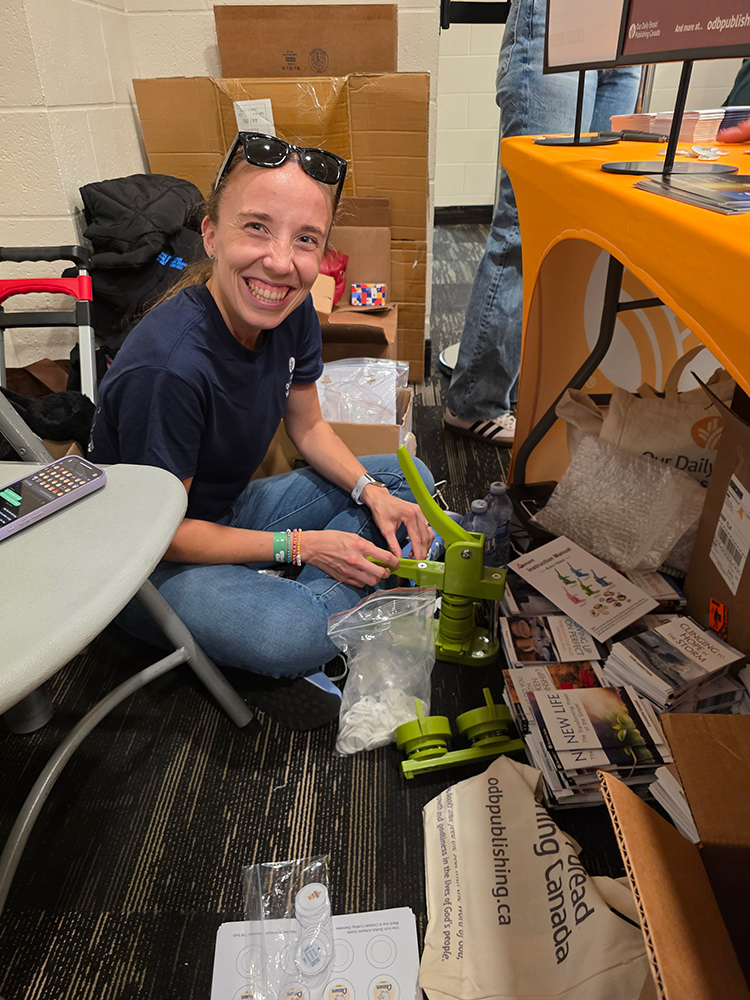

We distributed hundreds of materials, and many people scanned the QR code to find out about Reclaim Today, a brand of Our Daily Bread Ministries for young people under 30.
We also brought a social media influencer from Windsor, ON with us. Rheema loves the Lord and regularly gives Our Daily Bread to people in the community, boldly sharing stories on Instagram.
This is all possible because of our donors. We’re so thankful they share our mission of making the life-changing wisdom of the Bible understandable and accessible to all, and they trust that we’ll follow the Lord’s leading to make that happen.
“Witnessing the passion of the next generation reminded me that God is still changing lives and writing new stories through our ministry,” says Andrea, Ministry Services Supervisor.
“Seeing them worship affirmed that Christ Himself is building His church. Every seed we plant through Our Daily Bread Ministries Canada is a seed He can use to grow tomorrow’s legacy of faith, hope, and unshakable trust in Christ. The same God who was faithful to the last generation is shining just as brightly in the next,” she adds.
Be encouraged—the youth of today are hungry for truth and willing to hear from Bible-based ministries on how to find that truth. In our case, we direct them to Scripture through our devotionals, social media, podcasts, and the Discovery Series (Bible-based booklets with answers to topical issues).
We can’t wait to see the fruit from these seeds. And we can’t wait to sow more seeds. Please consider partnering with us so we can reach younger generations.